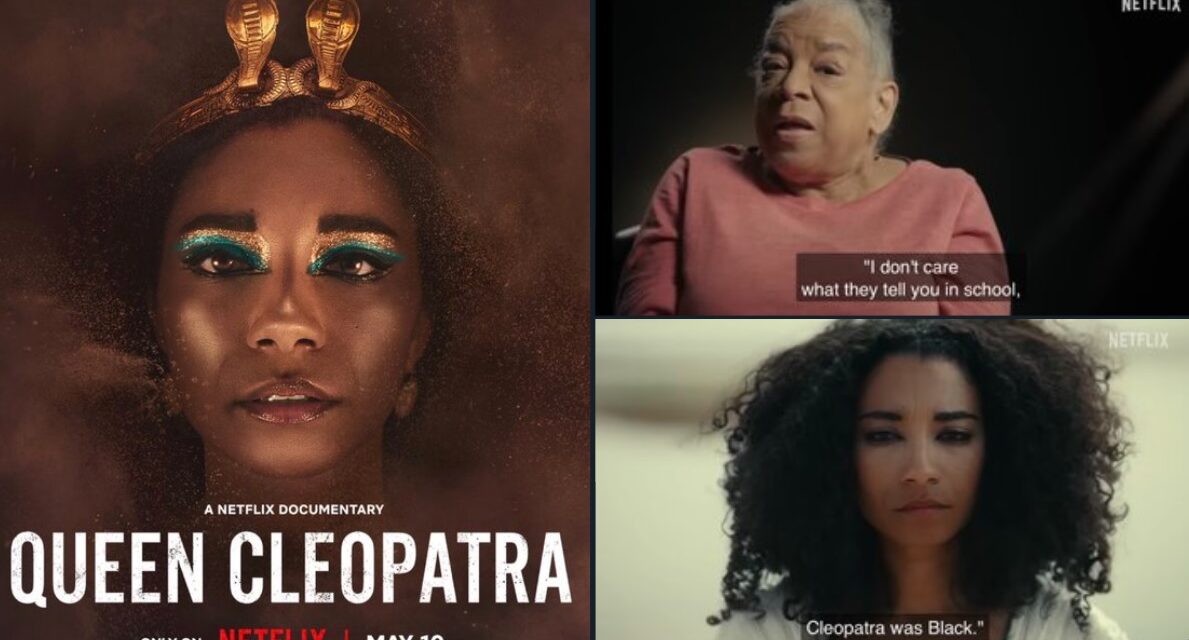These questions do not only apply to historical reality. Also on how one culture settles on another.
I didn't want to write about the fact that Netflix announced the premiere of the second part of its self-produced docu-drama series , featuring the self-proclaimed black Cleopatra. Not primarily because a similar topic comes up almost every week, public opinion explodes, everyone has their say, and then life goes on. However, there was a sentence in the trailer launched by the cinematic flagship of all-levels-correctness that caught my attention.
The background of the story: Netflix has launched a documentary-like series that explores the life stories of famous African queens. The series is documentary in nature, because on the one hand, the scientists of the specific field speak in each part (this brings documentaryism, according to the intention of the creators), and on the other hand, they reenact the relevant events of history with fictional actions (this brings the drama, also according to the intentions of the creators). The first season of the series covers the story of Queen Nzinga, The series is produced and narrated by Jada Pinkett Smith (yes, the wife of slapper Will Smith). The second season, announced for May
discusses the story of a real African queen-cannon, Cleopatra, and brings it to the stage.
Well, let's see the sentence, which, if you like, spilled the beans in me. The trailer itself is professional, what else could be done at this level. And yes, there is another, really important sentence in it, namely from the mouth of Cleopatra:
"Without the past, there is no future."
How right the pharaoh's wife is. Even if the phrase never occurred to him. And then: if we accept the idea expressed by Cleopatra, it would also not hurt to accept that the past must be presented accurately. Well, before I get involved in this, let me come to the end of the pool-covering sentence, which comes from the lips of an expert who was interviewed (his name was not shown, but I assume that he was not asked the internet hussar who lives next door). It sounds like this:
"I remember my grandmother telling me: I don't care what they tell you at school, Cleopatra was black!"
God bless all grandmothers! Also the one who said the above sentence to his grandson. Who, on the other hand, says the same thing in a film series defining itself as a documentary drama series. As (I assume) an expert. I think the difference is clear. I understand that a trailer is not the whole movie. And what may have been left out of the passage is, "Sure, my grandmother could say funny things sometimes." If that's included, great. If it's not there, then there's a problem. Namely, what stems from Cleopatra's sentence quoted above. If there is no future without a past, then that particular past should not be rewritten (unless it is based on incorrect information, see below). Of course, the rewritten past is also past, only a different future follows from it. Where is the problem? Well there, how
If a work is fictional, that is, it does not attempt to depict the events of the past in a realistic way, well, you can swallow a lot of things. The hero can do whatever the creators want. Moreover, the hero can even be an apple tree, if for some reason the creators think that this will achieve an artistic effect. However, if the creators of a work aim to be documentary, then nothing can be said. Especially not in reference to Grandma.the rewriting of the past presupposes the erasure of some, in certain cases, already existing past.
After the presentation of the trailer, the Internet exploded again (and not only), as expected. A petition was also started in the matter, whose (presumably) Egyptian initiators demanded that the series be stopped. The petitioners argued that Afrocentrism is a pseudoscience that now wants to appropriate and falsify the history of Egypt. Because Cleopatra was Greek. In two days, 85,000 people signed the petition. But in the meantime, someone simply deleted it .
I don't want to play the piano through the comments written and spoken on various Internet forums. the comment of a real expert, the Egyptian archaeologist and Egyptologist Záhi Havássz (the fact that he was deputy minister of culture and even minister for a short time is not so relevant), who says that the Netflix docu-drama is completely false.
The black (African) civilization in that era has nothing to do with the Egyptian one.
It is true that Egypt was really ruled by leaders of black African, more specifically, Nubian origin, namely in the XV. during the dynasty. And that is all.
And then let's see what science knows about Cleopatra. The lady was indeed Greek (or Macedonian, of course) by origin, that is undeniable. VII. Cleopatra Philopator, XII. The daughter of Pharaoh Ptolemy and his sister, Cleopatra V (sister marriage was a common practice around the house of the pharaohs at the time), she was the last ruler of the Ptolemaic dynasty. The first ruler of the dynasty, Ptolemy I. Szótér, was previously Alexander the Great's general. Whom Alexander the Great himself appointed the satrap of Egypt. And who later proclaimed himself pharaoh.
So far so good, let's say. Yes, but in 2009, the BBC sensationally announced that the remains of Cleopatra's sister, Arsinoe, had been found in Ephesus, Turkey, and that investigations indicated that her mother was "African". I will not go into detail about the debate that has flared up from time to time since then. Even with the best of intentions, it can be said that science still owes convincing proof of "African" origin.
But it seems that this much confusion is enough for a creative team to calmly launch a documentary film series about one of the most famous historical figures of antiquity. In other words, he loosely rewrites history in the absence of any solid evidence. And I repeat: I have a problem with the documentary here. If anyone thinks that the Little Mermaid can be played by a black actress, fine. Why not? If it's not an ideological weapon (though unfortunately it is), there's nothing wrong with it.
Tomorrow, Jackie Chan will play brother Tamás.
Or Monica Bellucci. Or the current lion of Metro-Goldwyn-Meyer. I'm kidding, of course, but the freedom of art can be as funny as it is sacred, right? Rewriting history, however, is a serious matter. I'll hazard a guess: sin. We know, it's happened quite a few times. And in a very serious way, possibly resulting in the death of millions.
I will give a similar example from the domestic field: in 1979, the Romanian director Doru Năstase made Vlad Țepes . The casting, it must be said, was (in today's terms) truly inclusive: in addition to a host of Romanian actors, György Kovács, András Csiky, Zoltán Vadász, Ferenc Fábián, László Miske, István Török, etc. appeared on the screen.
However, Mátyás Hunyadi was played by a Romanian actor named Eugen Ungureanu. I put it up because there was nothing better. In other words, the one who matched the image of King Matthias. In the background, however, there was a fierce struggle in order to make Mátyás dematerialized by the authorities of the time.
This transformational struggle is still going on today, only with more subtle means.
I won't go into how many arguments, what intrigues took place, are taking place in connection with the origin (Hungarian or Romanian) of this Mátyás Hunyadi (formerly Matei, nowadays Mathia Corvinul). I also do not want to analyze (it would take a long time) how the Hungarian community sat on the Romanians for centuries. And not that the Romanian community has sat on the Hungarian during the last hundred years. All I want to say is that if there is concrete evidence, it is acceptable that someone's ancestry is not what they were previously thought to be. If there is concrete evidence that Mátyás Hunyadi defeated the Hungarians in Romanian, or that he was actually a great Romanian king, no problem, this is not history, it would be a rewriting of the past. But correcting it.
In the same way, if there will be concrete evidence that Cleopatra's mother is not the XII. She was Ptolemy's brother, but some "African" lady, no problem, they correct the wrong information about the past and then you can safely state the past reality that has come to light in a documentary work.
Until then, however, what is happening is called a falsification of history. And I repeat: this is a crime with serious consequences. Whatever the intention, the road leading there is paved.Featured image: Twitter













